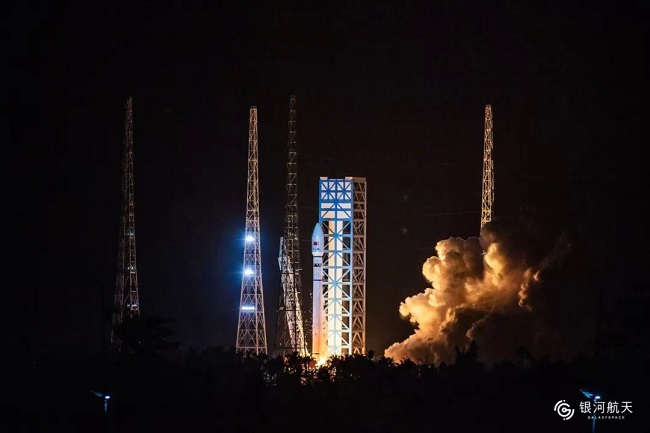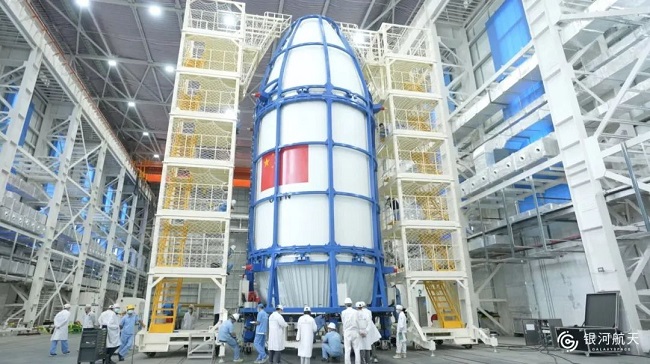Test satellite for satellite internet technology launched successfully
The new carrier rocket Long March 12 was successfully launched at China's first commercial space launch site - the Hainan International Commercial Aerospace Launch Center - on Nov 30, sending two satellites into their intended orbit, including the test satellite for the satellite internet technology developed by Galaxy Space, a hi-tech company based in the Beijing Economic-Technological Development Area (Beijing E-Town).

The test satellite for the satellite internet technology is successfully launched at the Hainan International Commercial Aerospace Launch Center.
Galaxy Space has consistently insisted on technological innovation and rapid iteration, achieving many innovative results, including the first domestic flat-panel satellite using flexible solar panels, the first batch-produced low-orbit broadband communication satellite, and conducting the first launch at the country's first commercial space launch center. It has become a unicorn enterprise in China's commercial aerospace field.
Currently, Galaxy Space has established independent research and low-cost mass production capabilities for communication payloads and core platform units, possessing internationally leading capabilities in the development of communication payloads, onboard computers, solar panels, and other core unit components. They have also built a new generation satellite intelligent manufacturing factory, forming a low-cost mass production capability to produce a hundred satellites annually.
"In the future, we will accelerate the core technology and low-cost breakthroughs in phased array antennas for direct-to-mobile satellite connections, onboard large-scale power systems, digital processing payloads, and other key technologies. We will also speed up the mass production of satellites and various critical equipment, collaborate with the upstream and downstream partners of the industrial chain to accelerate technological innovation, and together contribute to the construction of space infrastructure," said Zhu Zhengxian, Galaxy Aerospace's chief technology officer.

Companies from Beijing E-Town also participated in the first launch mission carried out by the Hainan International Commercial Aerospace Launch Center. Beijing Long March Tianmin Hi-tech Co., Ltd., for instance, organized the construction of the towers, fueling systems, and technical area power gas supply systems for Launch Pads 1 and 2 at the center.
"E-Town's participation" in this launch mission is a glimpse of the thriving commercial aerospace industry ecosystem in the area.
Currently, Beijing E-Town has gathered more than a hundred aerospace enterprises, achieving industrial clustering, collaborative development, and is accelerating its fusion and enhancement.
Since the beginning of this year, Beijing E-Town has been focusing on national strategic needs, consolidating its advantages in the rocket industry, expanding its footprint in the satellite industry, and comprehensively promoting the integrated development of satellites and rockets.


